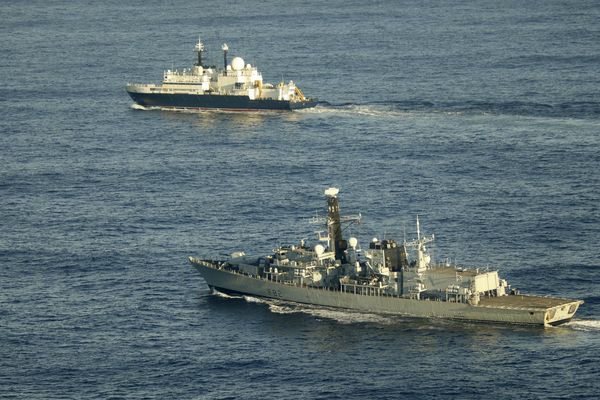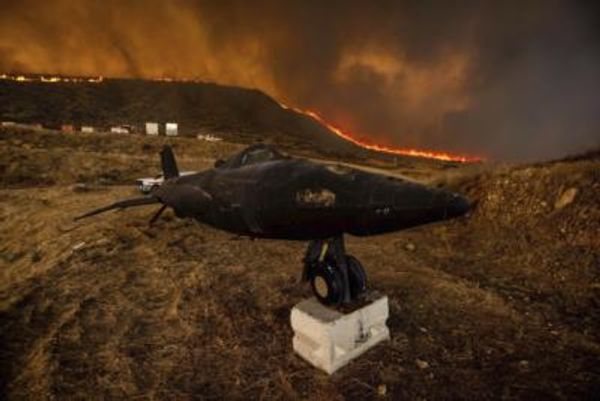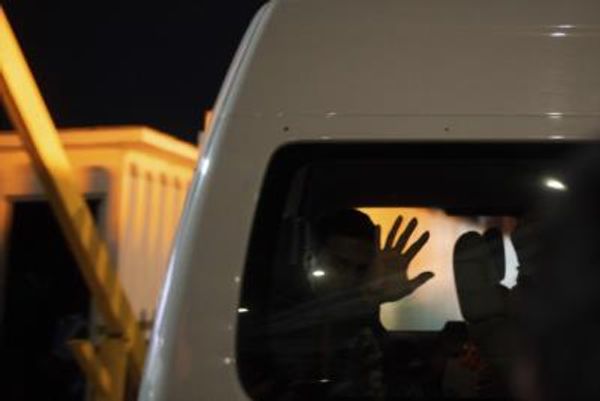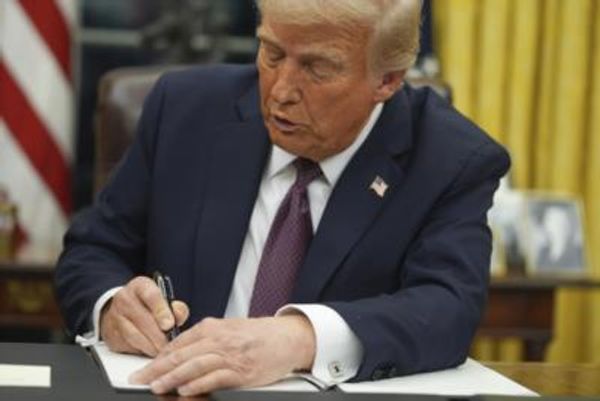
A leaked draft security pact between China and the Solomon Islands has led to a fair bit of panic among defence circles. Morrison government ministers are warning the agreement could pave the way for a Chinese military presence in the country.
Under the agreement, leaked by an advisor to a regional government in the Solomons Islands, China could be allowed to base navy ships off the coast of the country, and allowed to send armed police and military personnel at the Solomon Islands’ government’s request.
Almost immediately, Australia’s High Commissioner Andrew Barnes tweeted that Canberra would be stepping up further in the country, helping to build a radio network, a second patrol boat outpost, and around $20 million in budget support.
It’s a sign that Australia is worried about the implications of a greater Chinese military presence in a country where we’ve always been the main security provider. Experts say that while we shouldn’t react with too much hysteria about the agreement, it is the latest step in an increasingly deep relationship between Beijing and Honiara.
The background
Late last year, Prime Minister Scott Morrison sent Australian troops to Honiara to help curb civil unrest in the capital. The source of that unrest was broad dissatisfaction with Prime Minister Manasseh Sogavare’s leadership — issues around corruption, lack of service delivery, and controls on the media.
But another key source of malcontent was Sogavare’s increasingly close relationship with China. For decades, the Solomon Islands had recognised Taiwan’s independence, but switched that recognition to the People’s Republic of China in late 2019.
According to Griffith University Pacific expert Tess Newton Cain, that move was controversial, in part because of Taiwan’s historic support for the country, but also since Sogavare was viewed to have “railroaded” through the change without properly hearing advice from relevant inquiries.
China’s relations with the Solomon Islands have been deepening, particularly in the areas of infrastructure provision.
“What we’ve seen since 2019 was an increasing closeness between Beijing and Honiara, with increased infrastructure particularly around the 2023 Pacific Games,” Newton Cain said.
“We’ve also seen a deepening security relationship, particularly around the provision of personnel.”
Earlier this year, China provided police officers to help train local law enforcement in the aftermath of the riots. Last week, a shipment of fake guns sent from China led to controversy about Beijing trying to funnel arms into the country. When Sogavare, who drove the China pivot, faced an unsuccessful no-confidence motion last year, he reportedly used a Chinese slush fund to buy support.
What it means for Australia
The news from the Solomons Islands was met with a bit of anxiety among the government. On Q+A last night, Trade Minister Dan Tehan said he worried the agreement could undermine the Solomon Islands’ sovereignty.
According to Home Affairs Minister Karen Andrews, the move was concerning, because it expanded China’s presence in “our backyard”.
A heightened Chinese presence in the country is a big step, because Australia has always been the Solomon Islands’ primary security partner, and sent troops on a 14-year peacekeeping mission in the country between 2003 and 2017. China’s agreement with the Solomon Islands is the first security pact of its kind with a Pacific country.
Australia-China Relations Institute director James Laurenceson told Crikey that some of the reaction to the pact exposed the hypocrisy at the heart of Australian foreign policy: “We talk up these countries’ sovereignties. Just on a first-principles level, if the [Solomon Islands] government wants to increase cooperation with China, we should be respectful of that.”
The agreement would pose a diplomatic challenge for Australia, Newton Cain said.
“It’s a fine line for Australia to work in terms of maintaining their primary position in the country, while being very careful in not be seen as undermining Solomon Islands’ sovereignty.”
The Solomon Islands’ turn toward China is also a sign of a developing country, in need of better infrastructure, turning towards a country that’s willing to help. Former Labor leader Bill Shorten accused the government of being “asleep at the wheel” in the Pacific, saying, “I think this is a major foreign policy blunder and when we’ve got these sort of agreements being signed in our backyard, that’s the day job of the Morrison government.”
Newton Cain explained how Australia had gotten a bit complacent about the Pacific. In that vacuum, given the Solomon Islands’ needs, it isn’t surprising they’ve increasingly let China in the door.
“The Solomon Islands would say to Australia, possibly with some legitimacy — ‘You made a fortune out of your relationship with China. Why shouldn’t we benefit?’”







